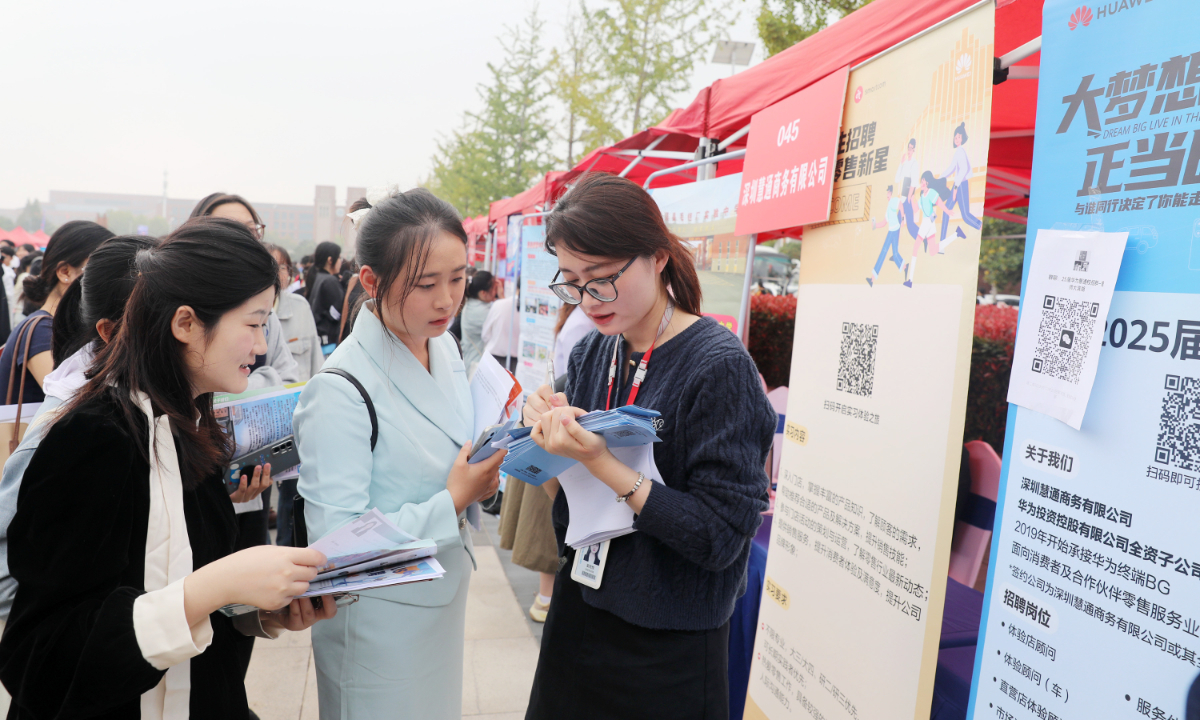
College students look for jobs at an employment fair held on the campus of the Huaibei Normal University in Huaibei, East China's Anhui Province on October 16, 2024. The job fair attracted more than 183 companies offering more than 10,000 positions. The year 2024 is expected to see 11.79 million students graduating from colleges, an increase of 210,000 from 2023. Photo: VCG
China has issued a guideline to accelerate the high-quality development of doctoral education, calling for the establishment of mechanisms that promptly respond to national demands, particularly enhancing the development of degree programs in key areas such as science, engineering, agriculture, medicine, as well as basic, emerging, and interdisciplinary fields.The guideline, released on Sunday by the General Office of the Communist Party of China Central Committee and the General Office of the State Council, systematically outlined comprehensive reforms in the country's doctoral education, highlighting its role as a key support for the nation's innovation efforts.
The goal is to establish a doctoral education system with Chinese characteristics that is world-class, said the guideline, by cultivating strategic talents and urgently needed professionals so as to provide strong support for building a major talent center and innovation hub, and achieve high-level self-reliance in science and technology.
To achieve this goal, it is essential to improve the discipline system and strengthen the forward-looking layout for strategic talent cultivation, the guideline noted.
This includes optimizing the layout of disciplines and majors, establishing mechanisms to promptly respond to national needs, particularly enhancing the development of degree programs in key areas such as science, engineering, agriculture, medicine, as well as basic, emerging, and interdisciplinary fields, and increasing the proportion of doctoral professional degrees.
The guideline also stressed the need to comprehensively enhance the quality of independent talent cultivation. It calls for reinforcing ideological and political guidance, reforming enrolment management, and strengthening the mechanisms for diversifying paths. Building a high-level teaching team and deepening innovative international exchange and cooperation are also essential in this process.
Global Times




